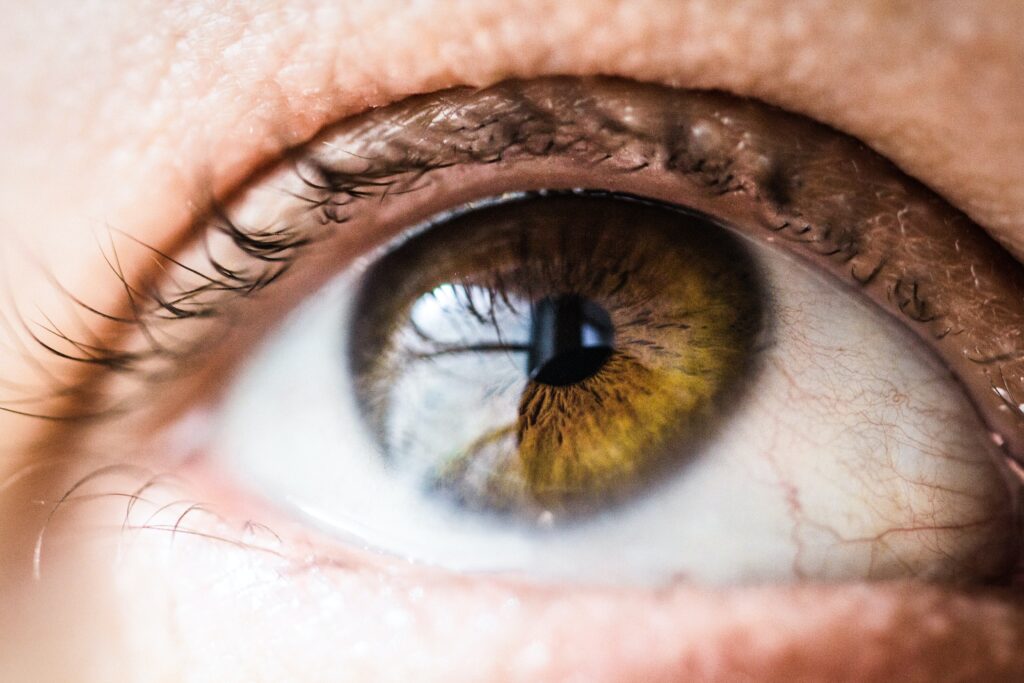Allergies affect a large number of the global population, with food allergies being on top of the list, with around 2.5% of people suffering from it worldwide. An allergic reaction occurs when your immune system identifies a harmless substance like something harmful and the most common triggers are pollen, dust mites, certain food, or animal dander. Even if allergies can’t be cured, using the right treatment plan helps to control the symptoms. Especially if you suffer from hay fever, one of the bothersome symptoms that you might be familiar with are itchy, red eyes or sneezing. Eye allergies and dry eyes also share these symptoms, but can allergies cause dry eyes?
Read below to find out more about the connection between allergies and dry eyes.
What is a dry eye?
A dry eye is a condition that affects tear production and it develops if the number of your tears is reduced.
The new tears produced consist of three layers: the oil, the mucus and the water layer and the quality of the tears depends on how well these layers function to keep the eyes hydrated.
The most common symptoms of dry eye are redness, light sensitivity, watery eyes, scratchy eyes or blurry vision. Inadequate hydration or little sleep can be one of the main causes that lead to dry eye, along with medication, allergies, diabetes or autoimmune disorders. Even though allergies can potentially cause dry eye, this can also be unrelated. Make sure you check with a board-certified allergy specialist for an adequate diagnosis and treatment plan.
Dry eye vs eye allergies
Dry eyes are a common problem that affects especially women, and it mostly occurs after the age of 50.
If dry eyes are correlated to the quantity and quality of tears produced, eye allergies (or allergic conjunctivitis) are a reaction to certain allergens like mold, dust, pollen or pet dander. Although in case of an allergic reaction, there is no eye pain, and this is a symptom of dry eye, a runny nose, sneezing or an itchy throat are all symptoms related to allergies.
If your dry eye condition persists, check with a physician, as you might be suffering from dry eye syndrome – a hereditary condition that can also be caused by your environment, and some medications and has nothing to do with allergies. However, if left untreated, both conditions can affect the quality of your life, so having an eye exam is imperative to determine the cause and get adequate treatment.
Dry eye and eye allergies treatment
Once your doctor determines that the causes of your symptoms are related to allergies, you might start the treatment with anti-allergy eye drops, although this depends from patient to patient and the severity of the conditions. However, since anti-allergy drops contain an antihistamine, it means that the medication in it can affect your tear production.
Another important step in alleviating your symptoms is to reduce contact with the allergen and also have some lifestyle or environmental changes. Some doctors might also prescribe decongestant eye drops or artificial tears to reduce discomfort and increase hydration. They can be found as ointments, eye drops or gels.
Other things that help:
- Use air conditioning and close the windows when pollen counts are high (especially if you live in Arizona, as pollen is one of the most common Phoenix allergies).
- Wear sunglasses as much as possible outdoors, especially in high-pollen season.
- Use an air purifier and dehumidifier device.
- Wash your hands after you pet your cat or dog.
- Keep your living area clean and using special bedding that is mite-proof.
If your dry eye is not caused by allergies, your eye doctor may prescribe a medicine that helps fight inflammation or even change your medication if your dry eye is caused by it.
The takeaway
As seen above, allergies can cause dry eyes, but it’s recommended to see a doctor if you are experiencing any symptoms of eye allergies or dry eye. Whether your symptoms are due to allergies or something else, getting the right treatment can be life-changing and improve your quality of life.
Our allergy associates can help you schedule your appointment, determine the cause or causes of your symptoms and prescribe the right treatment for your condition.
Get in touch today for more information!



